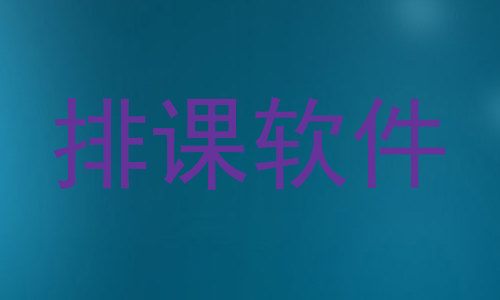随着信息技术的不断发展,排课软件在教育管理中的作用日益凸显。在湖南省株洲市,多所中小学和高等院校已开始引入排课软件以提高教学资源的利用率和课程安排的合理性。本文围绕排课软件的技术实现及其在株洲地区的应用展开讨论,并提出一种基于遗传算法的排课优化模型。
排课问题本质上是一个复杂的约束满足问题,涉及教师、教室、时间等多个维度的资源分配。传统的人工排课方式效率低、易出错,而现代排课软件通过算法优化可以显著提升排课质量。本文采用Python语言实现了一个简易的排课算法框架,该算法基于遗传算法(Genetic Algorithm)进行优化,能够有效处理课程冲突、时间重叠等问题。
示例代码如下:
import random
def generate_chromosome(lessons, classrooms, times):
# 生成随机染色体
return [random.choice(classrooms) for _ in range(len(lessons))]
def fitness(chromosome, lessons, constraints):
# 计算适应度函数
score = 0
for i, lesson in enumerate(lessons):
if chromosome[i] not in constraints[i]:
score += 1
return score
def crossover(parent1, parent2):
# 交叉操作
point = random.randint(1, len(parent1)-1)
return parent1[:point] + parent2[point:]
def mutate(chromosome, classroom_list):
# 突变操作
index = random.randint(0, len(chromosome)-1)
chromosome[index] = random.choice(classroom_list)
return chromosome
# 主程序逻辑
lessons = ['数学', '语文', '英语']
classrooms = ['101', '102', '103']
times = ['上午1', '下午1']
# 模拟约束条件
constraints = [{'101', '102'}, {'102', '103'}, {'101', '103'}]
# 初始化种群
population = [generate_chromosome(lessons, classrooms, times) for _ in range(50)]
# 迭代优化
for generation in range(100):
new_population = []
for _ in range(25):
parent1 = random.choice(population)
parent2 = random.choice(population)
child = crossover(parent1, parent2)
child = mutate(child, classrooms)
new_population.append(child)
population = new_population
# 选择最佳解
best_chromosome = max(population, key=lambda x: fitness(x, lessons, constraints))
print("最佳排课方案:", best_chromosome)

该代码展示了如何利用遗传算法解决排课问题的基本流程。通过不断迭代优化,最终可得到一个较为合理的课程安排方案。结合株洲地区教育资源分布的特点,此类算法可进一步优化,为教育信息化提供技术支持。
本站部分内容及素材来源于互联网,由AI智能生成,如有侵权或言论不当,联系必删!




